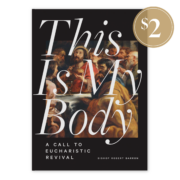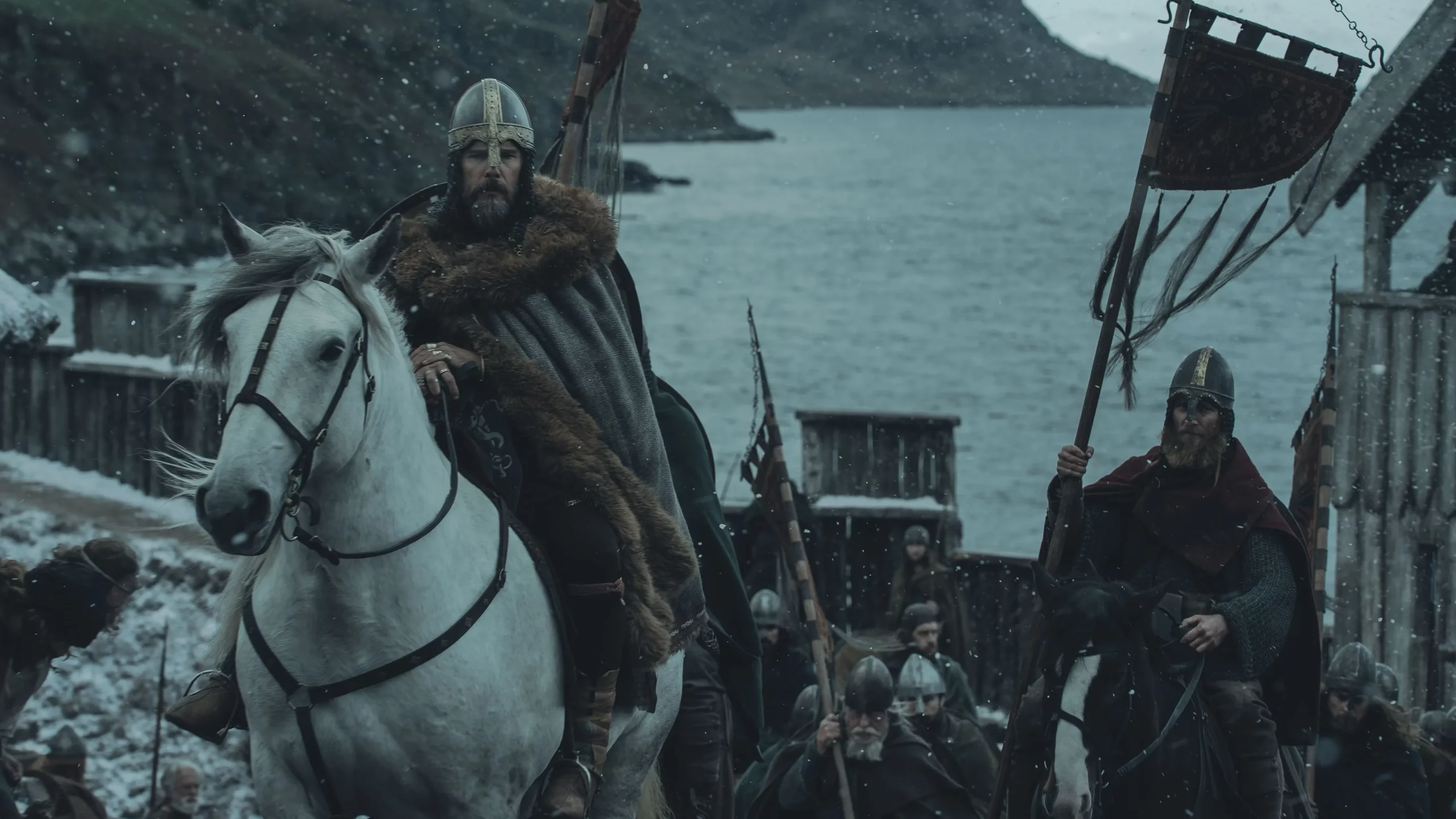American filmmaker Robert Eggers does not make typical Hollywood movies. His 2015 debut, The VVitch, is a horrifying tale of supernatural Puritanism, making use of authentic seventeenth-century dialogue and shot outdoors with natural light and indoors with candles. His 2019 follow-up, The Lighthouse, is a bizarre two-man play starring Willem Dafoe and Robert Pattinson, whose characters go mad through alcohol and maritime sorcery.
In his third and most recent film, The Northman, Eggers presents a full-blown anti-Hollywood epic, a Viking retelling of Shakespeare’s Hamlet, cowritten by Eggers and the Icelandic poet and novelist Sjón. The Northman is a brutal tale of destiny set in the late ninth and early tenth centuries AD on the fictional island kingdom of Hrafnsey, ruled by King Aurvandill (Ethan Hawke) and Queen Gudrún (Nicole Kidman), as well as in the real lands of Rus and Iceland.
The Northman depicts the journey of Prince Amleth (descramble that one), who—as a young man newly initiated into the mysteries of the gods—witnesses his father’s murder at the hand of his Uncle Fjölnir, played with depth and intensity by the Danish actor Claes Bang. Young Amleth narrowly escapes with his life, vowing, “I will avenge you, Father; I will save you, Mother; I will kill you, Fjölnir!”

We next meet Amleth in the hulking figure of Alexander Skarsgård, who lives as a marauding mercenary as he prepares to fulfill his promise when the right moment arrives. He has one goal, and his mind seems empty of all else. In this way, Eggers depicts Amleth’s quest for vengeance in the complete opposite way of Matt Reeves’ The Batman, forgoing anachronistic psychological turmoil for an almost entirely physical struggle. There is no “to be or not to be” in the soul of a berserker.
But there are gods, and vows to these gods are unbreakable bonds. Likewise, prophecies from their clerics are all-too real. In a recent interview, Eggers put it plainly: “There were no Viking atheists.” Here, Eggers greatly elaborates on the metaphysics of his previous films, depicting a weird providence in a haunted landscape seen only rarely in modern cinema by the likes of Lars von Trier and David Lynch. Willem Dafoe, a favorite of Von Trier and now Eggers, is excellent as the jester and shaman, Heimir. Björk, another Von Trier alumna and longtime friend of Sjón, is terrifying and enrapturing as the Seeress, who reminds the grown-up Amleth of his bloody destiny. The work of the deities is everywhere.
In Olga, we know the twilight of the gods is coming; and for Christians, the dawn from on high is breaking.
In several places in The Northman, Eggers teases the world of mainstream storytelling and cinema. A brutal field hockey game emphasizes the finitude of soulful humans, who live beneath and stand in judgment under an infinite cosmos—a “magical” dimension that J.K. Rowling’s quidditch pitch cannot contain. The climactic fight between Amleth and Fjölnir on a volcano contrasts with the cheesy ending of George Lucas’ Revenge of the Sith. And although heroes in The Northman pin their hopes on being carried to Valhalla, not Heaven, Eggers presents a non-sentimental vision of the eternal consequences of human agency that few other filmmakers would have any clue how to approach. The MCU offers nothing like it—even, or maybe especially, in the Norse-inspired Thor films.
The most intriguing plotline of The Northman runs through the character of Olga, a Slavic slave who practices a different pre-Christian religion—an animist spirituality that allows more room for contemplation than her captors’ violent pantheon. Olga is played superbly by Anya Taylor Joy, who previously starred in The VVitch as well as the celebrated Netflix series The Queen’s Gambit. Although set in the last throes of Vikings living under the watchful eye of Odin and his ravens, the thunderous hammer of Thor, and the manipulation of human destiny by the norns, The Northman leaves us with the realization of what could come next: mercy instead of vengeance in a world where every fight leads one way or another to a place of annihilation. Death must die. And only the crucified God, derided in one scene in the film by Fjölnir’s men, can subsume all tragic fates and collapse the whole flow of time in love, which Olga embodies. In Olga, we know the twilight of the gods is coming; and for Christians, the dawn from on high is breaking.

The Northman is a big, engrossing movie that draws from but also upends conventional historical epics and superhero movies. More importantly, The Northman takes the supernatural seriously, rejecting the disenchantment that the Catholic philosopher Charles Taylor has rightly identified as the water we swim in today. Eggers says of his unusual, even rebellious fascination with religion, “Perhaps it’s growing up in a secular society, where the sacred and the sublime aren’t anywhere to be found, at least without looking really hard.” In this way, Eggers’ The Northman may be following another revenge story: Alejandro Iñárritu’s sacramentally soaked 2015 film, The Revenant, which impresses on viewers what it feels like to choose to see reality as an enchanted world, albeit a violent one.
The Northman is a magnificent enterprise “of great pith and moment.” Let us hope for more of this strange spiritual fare from Robert Eggers in the years to come.
